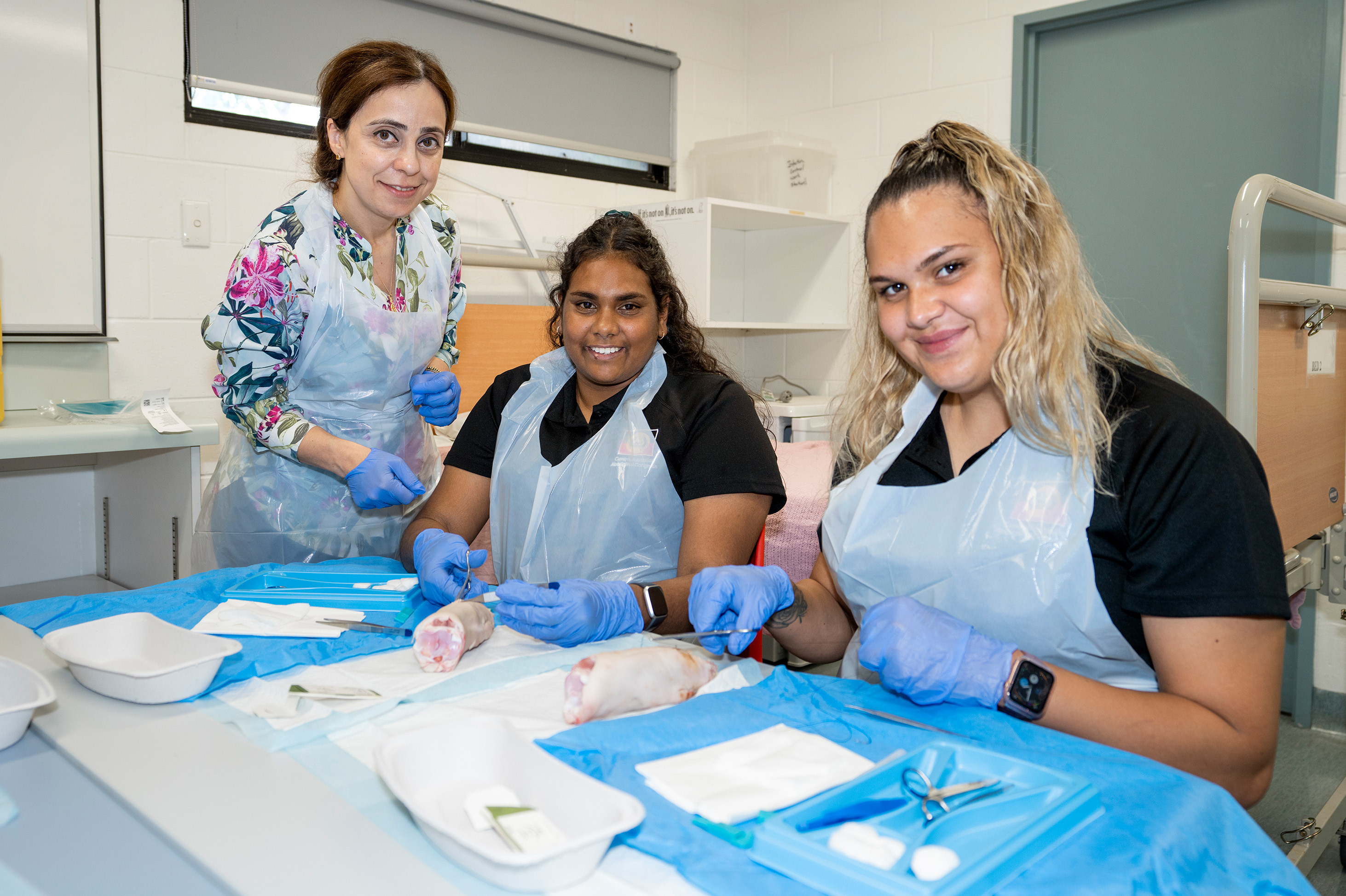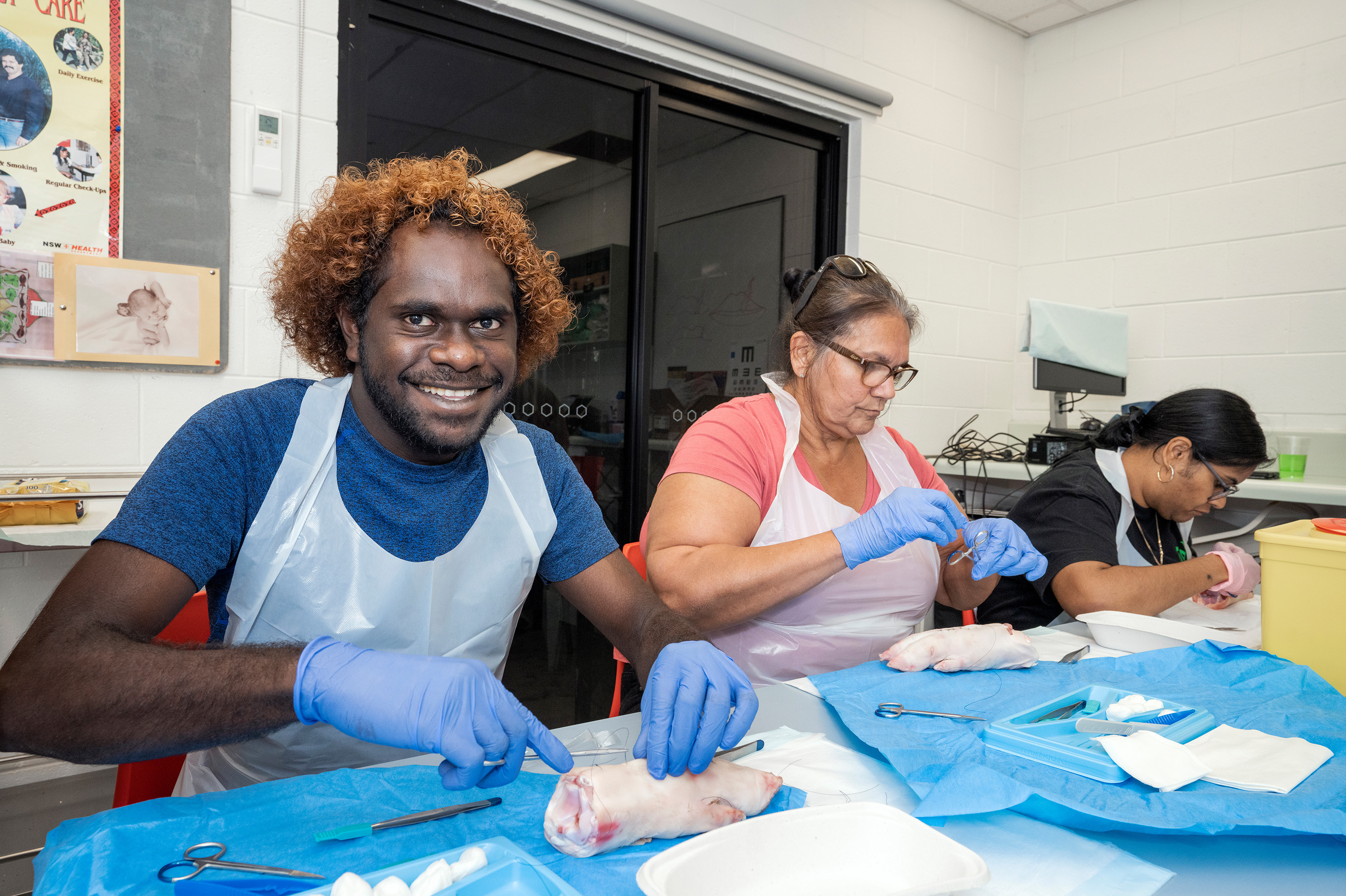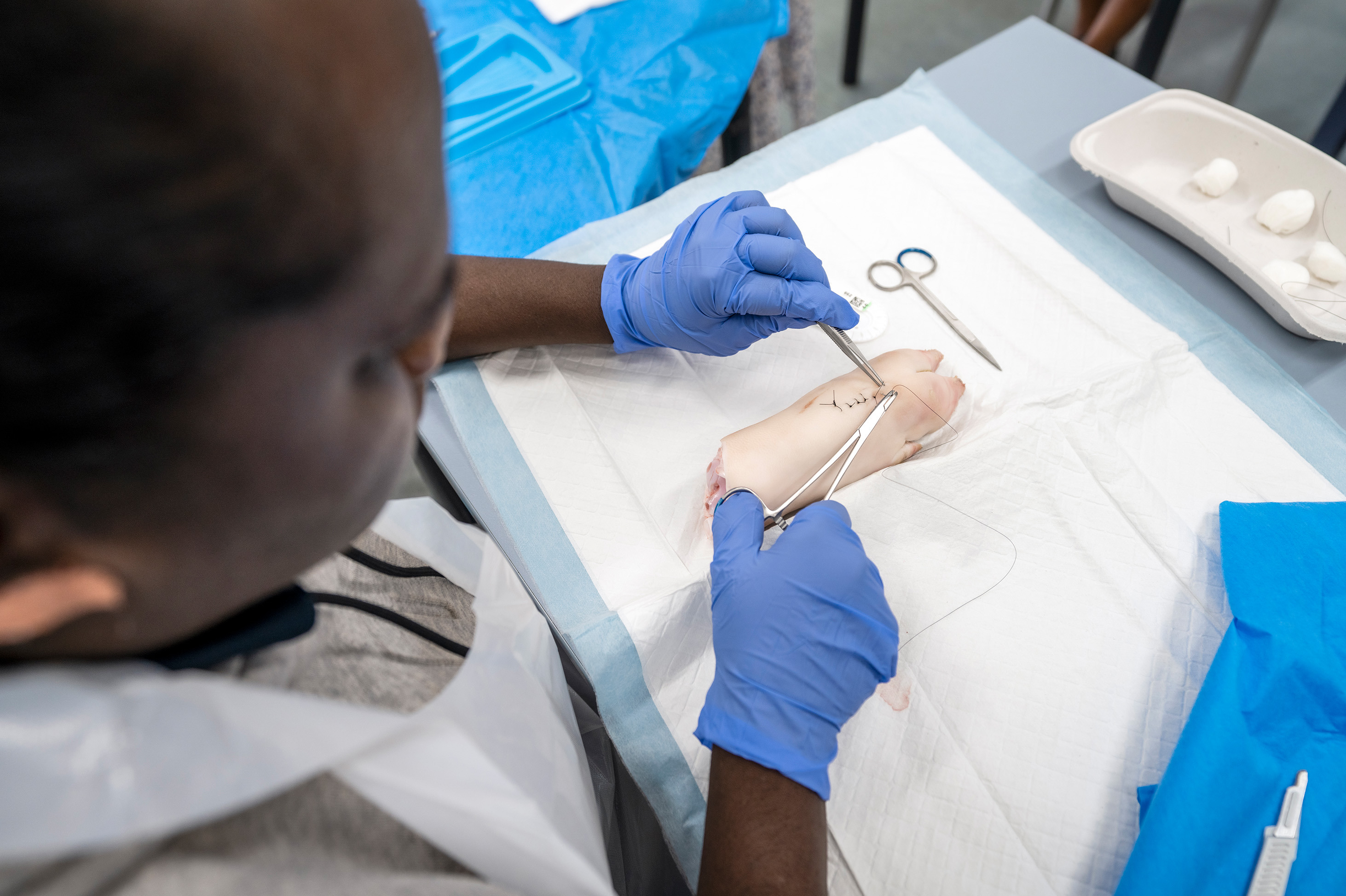

On Friday 25th June 2021, specialist plastic and reconstructive surgeons taught expert suturing and wound care practices to 40 Aboriginal health worker students at Batchelor Institute.
Led by Sydney-based Chairman of the Australasian Foundation for Plastic Surgery, Dr Richard Barnett, the surgeons donated their time as part of a wound management program.
The Batchelor Institute students are in their first or second year in the Certificate IV in Aboriginal and Torres Strait Islander Primary Health Care Practice (HLT40213).
While suturing and wound care forms part of their regular curriculum, the surgeons’ hands-on tuition based on best practice plastic surgery will mean the students’ patients will benefit from fewer scars and faster healing wounds.
Dr Barnett said chronic wounds disproportionately affect remote indigenous Australian communities where an injury is the second most common reason for hospitalisation.
“If not treated correctly, a chronic wound can take years to heal or may lead to amputation.
The Foundation secured a Commonwealth Government grant that enables the specialist team to deliver training workshops in remote areas of the Top End.
“This is an Australia-first and at its heart is the opportunity for knowledge exchange between Specialist Plastic and Reconstructive Surgeons and remote health workers,” Dr Barnett said.
“The program provides learning modules on wound closure and suturing techniques, face-to-face clinical assessments and train the trainer workshops. As well as providing new skills to local people, it gives surgeons new knowledge about traditional and local approaches to wound care.

“We normally travel to remote clinics to deliver the training to practising health workers, nurses and remote practitioners, so this is the first time that we have delivered training to students as part of their course work.”
The surgical team delivered the training, with classroom presentations in the morning and hands-on workstation style practice in the afternoon. The surgical team comprised:
Friday 25 June
- Chairman of Australasian Foundation for Plastic Surgery, Dr Richard Barnett (Sydney)
- Dr David Gillett (Perth)
- Dr Ravi Mahajani (Darwin based)
- Dr Gillian Farrell (Darwin based)
Acting Batchelor Institute CEO Gareth Allison said world-class specialists’ training would provide the students with the confidence to deliver their clients the best possible health outcomes in often challenging remote environments.
“First Nations people have benefitted from traditional knowledge in wound management, but this training gives them skills and tools not previously accessible to remote practitioners,” Mr Allison said.
“We are grateful for the time these visiting specialists have invested in our students and hope that it becomes an enduring partnership.”

